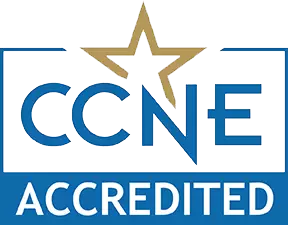Career Guide
Health information management director
If you excel at data analysis, are highly organized, love to tackle challenges and have an eagle eye for detail, you could be on your way to forging a career path as a health information management director.
If you excel at data analysis, are highly organized, love to tackle challenges and have an eagle eye for detail, you could be on your way to forging a career path as a health information management director.
Career overview
Health information management (HIM) directors are a type of medical and health services manager who play a pivotal role in the healthcare industry. A HIM director's responsibilities may include:
- Operations management: Overseeing the operations of medical records and health information systems
- Data management: Ensuring accurate recording of all patient data, including treatment records and patient health outcomes, and maintaining secure storage and efficient accessibility of patient data for providers
- Compliance and policy development: Developing and enforcing policies to comply with federal and state regulations on privacy and security of patient information
- Quality assurance and improvement: Analyzing health information to identify trends or areas for quality assurance and strategizing on improving patient health care based on data analysis
- Communication and coordination: Facilitating effective communication between medical, administrative and IT departments regarding health information management
Take your next step
In 2024, there were approximately 616,200 medical and health services managers in the U.S. workforce, according to the Bureau of Labor Statistics (BLS). The largest employers of these professionals included state, local and private hospitals; physician offices; and nursing and residential care facilities.[1]
These experts may work alongside operations professionals, including data analysts, financial officers, software developers and medical records practitioners. Some reported job titles related to this role include health information manager, medical records director, clinical director, nursing director and healthcare system director, according to O*NET.
Advantages
As the Baby Boomer generation ages, the demand for healthcare workers is expected to grow. Therefore, a higher number of medical and health services managers will likely be needed to manage staff, coordinate patient care in team-based environments and oversee the organization and management of electronic health records (EHRs), BLS reports.
Career-relevant skills
In day-to-day experience in this role, health information management directors may demonstrate skills in the following areas:
- Systems thinking
- Performance improvement
- Marketing - economic implications
- Data analysis
- Information management
- Quality management through the triple aim
- Accounting
- Management
- Marketing - ethical implications
- Compliance and privacy management
- Policy enforcement
- Risk management
- Supply chain management
- Economics
- Marketing - consumer choice implications
- Environmental scanning
- Operations
- Change management
- Policy and governance
- Population health
- Advocacy
Additional skills:
- Strategic alliance
- Facilitation and negotiation
- Self-reflection
- Complexity leadership for teams
- Conflict management
- Self-awareness
- Human resource process management
- Human capital talent management
- Succession planning and mentorship
- Environmental and social sustainability
- Engaging teams in sustainability
- Financial analysis
- Performance appraisal
- Accountability
- Innovation
Regularly used on the job
As a medical and health services manager, essential soft skills include meticulous attention to detail, strong leadership abilities, analytical thinking and effective communication, BLS states.
62,100 jobs
Projected annual job opportunities
National job opportunities for medical and health services managers — including health information management directors — are projected to grow by 23% between 2024 and 2034, BLS reports. [2]
[1] For source data, refer to the official BLS Occupational Employment and Wage Statistics table. This information can be found under Medical and Health Services Managers (11-9111) in the “Annual 25th percentile wage” and “Annual 75th percentile wage” columns.
[2] Salary ranges are not specific to students or graduates of University of Phoenix. The salary ranges, job opportunities and outcomes presented represent the larger job category, which includes the particular job title. Actual outcomes vary based on multiple factors, including prior work experience, geographic location and other factors specific to the individual. University of Phoenix does not guarantee employment, salary level or career advancement. BLS data is geographically based. Information for a specific state/city can be researched on the BLS website. The BLS Projected Growth for 2024-2034 is published by the US Bureau of Labor Statistics. This data reflects the BLS’ projections of national (not local) conditions. These data points are not specific to University of Phoenix students or graduates.
Education and experience

Education requirements for health information management director job candidates may vary. While some employers may allow candidates with a bachelor’s degree to apply, others may prefer candidates with a master’s degree. A graduate degree may enhance job prospects and strengthen your credibility as a candidate. You may consider programs in a related area of study, such as health information management, health administration or nursing.
You may also want to consider certificate programs to complement your path towards the health information management director career. Certificates are shorter than degree programs but can be valuable as they can help you stay updated on new trends in your field and build up your real-world skills. At the University of Phoenix, we've designed our certificate programs with you in mind — especially if you've already earned a bachelor's degree and are looking to dig deeper into your specialty or broaden your expertise in the field.
Alongside your educational qualifications, you will likely need work experience in health information management or a related area. The required length of previous experience may vary by employer. You can gain relevant practice in a professional environment through entry-level positions, such as medical records specialist, or fellowship opportunities, which may be paid and possibly lead to employment. From there, you can advance into mid-level roles, such as health information manager, before pursuing the health information management director position.
Once you’ve worked as a health information management director for some time, you may decide to take your next career step. You may consider pursuing new responsibilities by expanding your scope of work or seeking higher-level executive roles, which may require a master’s degree, according to BLS.
Phoenixes in the workplace
Meet Wayland W., an alum whose journey from adversity to leadership exemplifies resilience. As a director of a non-profit health care system, his UOPX education empowered him to lead with heart, transforming his career and allowing him to create positive change in healthcare.
Wayland W. | MHA 2016
Phoenixes in the workplace
Meet Wayland W., an alum whose journey from adversity to leadership exemplifies resilience. As a director of a non-profit health care system, his UOPX education empowered him to lead with heart, transforming his career and allowing him to create positive change in healthcare.
Programs
At University of Phoenix, we offer several master's and doctoral degrees, as well as certificates, that lead to the health information management director career outcome. Our flexible approach to learning means you can integrate higher education into your life, advancing one course at a time every six weeks. Explore our offerings to find out which program is aligned to your goals.
Master of Health Administration
This online master of health administration program provides leaders and aspiring leaders in the health sector with the insight and skills necessary to drive the future of healthcare by facilitating cross-system transformation and improving outcomes for patients, populations and providers. Areas of inquiry include industry and organizational dynamics in the health sector, visioning the future, forming strategic relationships, leading with authenticity in health systems, creating a sustainable personal legacy and transformation and execution in diverse health system contexts.
In this program, you’ll learn how to:
- Evaluate industry and organizational dynamics in the healthcare environment
- Generate core business strategies based on innovative concepts developed in the program
- Construct strategic relationships with diverse stakeholders across the health sector to achieve business objectives with a current or desired employer
- Develop a leadership identity that reflects traits required in complex medical settings
- Produce a personal legacy that fosters investment in people and the community to drive the future of healthcare
- Foster the ability to create and execute operational improvement plans that address transformation, communication, and execution elements within the sector
You can earn this degree by completing a minimum of 36 credits. The program is 17 months long.
Master of Health Administration (Competency-based)
We also offer a Master of Health Administration competency-based program. It's important to recognize that competency-based education isn't suitable for everyone. If you thrive in a structured academic environment with consistent instruction, you may find the traditional MHA program more suited for you. Our MHA competency-based program, on the other hand, is ideal for students who prefer a more independent approach to learning, allowing you to progress at your own pace and manage your time more efficiently — all while potentially saving time and money on your degree. This program is designed to be completed in 12 months. Learn more about our competency-based programs.

The Master of Health Administration (MHA) program is programmatically accredited by the Commission on Accreditation of Healthcare Management Education (CAHME).
For additional information, visit cahme.org or call 301-298-1820.
Commission on Accreditation of Healthcare Management Education (CAHME), PO Box 911, Spring House, PA 19477
Master of Health Administration with a concentration in Healthcare Compliance and Privacy
This online healthcare administration master's degree (compliance) program prepares leaders and aspiring leaders in the healthcare sector by providing the competencies necessary to drive the future of the industry through effective facilitation of cross-system transformation and the improvement of health outcomes for patients, populations and providers. The Healthcare Compliance and Privacy concentration within this program is designed to prepare leaders and aspiring leaders for leadership positions in compliance and privacy within the industry that require competency in compliance practices, ethical considerations, and policy implementation regarding privacy, regulatory affairs and legal obligations within the industry. The program educationally prepares students to sit for the Certificate in Healthcare Compliance (CHC) examination.
In this program, you’ll learn how to:
- Evaluate industry and organizational dynamics in the healthcare environment
- Generate core business strategies based on innovative concepts developed in the program
- Construct strategic relationships with diverse stakeholders across the health sector to achieve business objectives with a current or desired employer
- Develop a leadership identity that reflects traits required in complex medical settings
- Produce a personal legacy that fosters investment in people and the community to drive the future of healthcare
- Foster the ability to create and execute operational improvement plans that address transformation, communication and execution elements within the sector
- Create compliance and privacy practices for diverse healthcare organizations
- Create an identity as a leader in compliance and privacy within the industry
- Evaluate ethical considerations regarding leadership of compliance and privacy practices across the industry
You can earn this degree by completing a minimum of 45 credits through courses in program content areas and concentration-specific topics. The program is 21 months long.
Master of Health Administration/Master of Business Administration (Dual degree)
This online master's in healthcare administration and business administration dual degree program prepares leaders who can effectively respond to the dynamic and ever-changing healthcare industry while providing in-depth knowledge to business management practices. The dual degree provides graduates with a distinct edge and greater flexibility in shaping a meaningful career by covering essential business knowledge and industry specific skills. Students will critically examine and evaluate issues and trends that impact our evolving healthcare system. Curriculum is tailored to the needs of the healthcare business leader by providing content in areas such as finance, policy, research, technology, human resources, economics, marketing and strategic planning. The program also emphasizes the identification, analysis and solution of complex management problems for a growing industry. In addition, the dual degree offers students to customize the curriculum by selecting elective courses to prepare for career opportunities.
In this program, you’ll learn how to:
- Evaluate industry and organizational dynamics in the healthcare environment
- Generate core business strategies based on innovative concepts developed in the program
- Construct strategic relationships with diverse stakeholders across the health sector to achieve business objectives with a current or desired employer
- Develop a leadership identity that reflects traits required in complex medical settings
- Produce a personal legacy that fosters investment in people and the community to drive the future of the industry
- Foster the ability to create and execute operational improvement plans that address transformation, communication and execution elements within the sector
- Integrate decision-making skills to deliver organizational value in dynamic environments
- Create strategies for sustainable organizational success that integrates the organization's mission and vision with societal values
- Synthesize leadership skills to foster innovation and facilitate change in a dynamic business environment
- Evaluate the global environment to sustain an organization's competitive advantage
- Integrate managerial skills to support strategic execution in a rapidly changing business environment
You can earn this degree by completing a minimum of 58 credits through courses in required and elective topics. The program is 27 months long.
Master of Science in Nursing with a concentration in Informatics (MSN/INF)
This is a post-licensure nursing program designed for nurses with current RN licensure who desire to obtain an online master's in nursing (informatics). The program prepares the graduate to function in nursing informatics leadership roles; specialize in the design and use of electronically stored data to influence quality in care delivery; and provide evidence of meeting quality, compliance and regulatory standards and requirements.
- Integrate theoretical, organizational and systems leadership concepts into resources for diverse populations
- Evaluate organizational processes, system, and utilization of current technologies to support continuous quality improvement and promote safe patient outcomes
- Appraise theory and evidence-based research to transform professional nursing practice
- Synthesize the principles of healthcare policy, regulation, accreditation and ethics to advocate for change within populations
- Integrate evidence-based guidelines and interprofessional collaboration to improve care for diverse populations in local, national and global settings
- Implement informatics data and technical systems to improve client-centered and culturally diverse outcomes
- Use the System Development Life Cycle (SDLC) to design systems that disseminate data to support decision making
You can earn this degree by completing a minimum of 34 credits through 11 courses in core topics. The program is 20 months long.
If you hold an active RN license and a bachelor's degree in an unrelated field, our Nursing Bridge Program is tailored to help experienced professionals like you earn a master's degree in nursing, while saving on time and tuition. You’ll start with three Bachelor of Science in Nursing courses and transition into a program specialty that aligned to your career goals. This option an efficient path designed with your career advancement in mind.

The baccalaureate degree program in nursing, master's degree program in nursing, and Doctor of Nursing Practice program at the University of Phoenix are accredited by the Commission on Collegiate Nursing Education, 655 K Street, NW, Suite 750, Washington, DC 20001, 202-887-6791.
Doctor of Health Administration
This online doctor of health administration program prepares mid-careerists across the health sector for the future of the industry, providing aspiring leaders with the competencies necessary to lead and meet the demands of rapidly changing organizations, shape the structure of complex health systems and their evolution and contribute to the existing body of knowledge through evidence-based practice and innovative organizational research.
In this program, you’ll learn how to:
- Integrate the Scholar Practitioner Leader (SPL) Model throughout the doctoral journey and beyond
- Cultivate a leadership identity that reflects a mature and strategic understanding of the dynamics of diverse health sector environments
- Develop doctoral research that identifies and addresses opportunities for improvements in health sector contexts
You can earn this degree by completing a minimum of 54 credits through courses in required and elective topics. The program is 42 months long.
Doctor of Nursing Practice (DNP)
This online doctor of nursing practice builds on the foundation of the graduate nursing competencies. Program content focuses on advocacy; scientific evidence and innovations for improvement in patient and healthcare outcomes; leadership strategies; and accountability to transform delivery by designing, evaluating and continuously improving the context within delivery. Graduates are prepared for the expanding role functions and the needs of advanced nursing practice. Graduates of the DNP, with a blend of clinical, organizational, economic and leadership skills, are prepared to significantly influence outcomes.
In this program, you’ll learn how to:
- Integrate scientific underpinnings to advance nursing practice and improve the healthcare environment following state Nurse Practice Acts and/or regulatory guidelines
- Construct leadership strategies to improve outcomes
- Translate scientific evidence and innovations to improve population health status and care outcomes
- Synthesize scholarly evidence, judgment and accountability in designing, delivering and evaluating a project to impact health outcomes.
You can earn this degree by completing 31 credits of required study. The length of this program is 20 months, and each course is eight weeks long. This program does not prepare students for any type of professional certification or state licensure as a nurse or an advanced practice nurse.

The baccalaureate degree program in nursing, master’s degree program in nursing, and Doctor of Nursing Practice program at the University of Phoenix are accredited by the Commission on Collegiate Nursing Education, 655 K Street, NW, Suite 750, Washington, DC 20001, 202-887-6791.
Health Information Systems Certificate (Undergraduate)
The Health Information Systems Certificate is an academic certificate that provides a foundation of knowledge to pursue a career in health information systems and technology. Upon successful completion of the program, students will be educationally prepared to pursue a certification as a Certified Associate in Healthcare Information and Management Systems (CAHIMS) through the Healthcare Information and Management Systems Society (HIMSS).
In this program, you’ll learn how to:
- Apply project management concepts to medical institutions
- Explain IT system integration in the industry
- Explain technology information system concepts to support the industry
This certificate requires you to complete 24 credits and is 10 months long. Each course is five weeks in length.
Graduate Healthcare Compliance and Privacy Certificate
The Graduate Healthcare Compliance and Privacy Certificate is designed to prepare leaders and aspiring leaders for leadership positions in compliance and privacy within the healthcare industry that require competency in compliance practices, ethical considerations and policy implementation regarding privacy, regulatory affairs and legal obligations within the healthcare industry. The certificate educationally prepares students to sit for the Certificate in Healthcare Compliance (CHC) examination.
In this program, you’ll learn how to:
- Create compliance and privacy practices for diverse medical institutions
- Create an identity as a leader in compliance and privacy within the industry
- Evaluate ethical considerations regarding leadership of compliance and privacy practices across the industry
This certificate requires you to complete 15 credits and is seven months long. Each course is six weeks in length.
Post Master's Certificate in Health Administration
The Post Master's Certificate in Health Administration program is intended for early- to mid-careerists across the health sector wanting to focus on health administration at the postmasters level from an applied perspective. This certificate is designed to emphasize curricular leadership that improves instruction and educational outcomes. The credits earned from CERT/D-HA are transferable and applicable toward the University of Phoenix Doctor of Health Administration.
In this program, you’ll learn how to:
- Apply project management concepts to medical institutions
- Explain IT system integration in the industry
- Explain technology information system concepts to support the industry
This certificate requires you to complete 15 credits and is 10 months long. Each course is six weeks in length.
If you are looking to earn bachelor’s degree related to this field, you may consider a Bachelor of Science in Health Administration (BSHA) or a Bachelor of Science in Health Management (BSHM). While these University of Phoenix bachelor’s degrees do not directly prepare you for the health information management director career, a bachelor’s degree is a necessary prerequisite for our master’s degrees detailed above.
When enrolled in our BSHA or BSHM programs, you can also get a head start on your graduate-level education through our MHA Pathway. You will have the option to take two graduate-level courses as electives to count towards your Master of Health Administration degree.
We maintain a similar offer for graduate students in the following programs who are looking to earn additional academic credentials beyond their master’s degree:
- Master of Health Administration
- Master of Health Administration with a concentration in Healthcare Compliance and Privacy
- Master of Health Administration/Master of Business Administration
These students have the option to substitute up to three select graduate level courses with designated doctoral level courses, which they may be able to apply toward a doctoral degree at the University.

How can University of Phoenix support me in pursuing my career goals?
Once you become a Phoenix, you'll gain access to our Career Navigator tools, which can help you evaluate career options, track career-relevant skills and discover job postings suited to your needs. From resumé building and interview preparation to networking and mentorship, University of Phoenix offers career services for life to all students and graduates. Dive deeper into our career services, resources and tools to find out how we can help you reach your goals.


